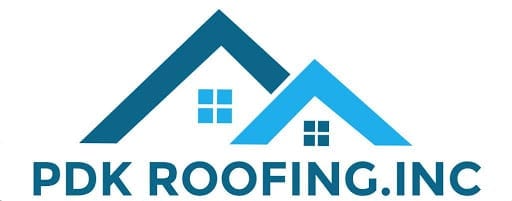
Introduction
“Do you need a roofing license in Florida?” The short answer is yes. To work as a roofing contractor in the Sunshine State, obtaining a roofing contractor’s license is a prerequisite mandated by Florida law. This license is issued through the Department of Business and Professional Regulation (DBPR) under the oversight of the Construction Industry Licensing Board (CILB).
Like many other states, roofing laws in Florida require roofing contractors to hold a valid license to perform roofing work. The licensing process ensures that contractors meet certain standards, possess adequate knowledge, and adhere to state regulations to safeguard both consumers and the industry.
Obtaining a Contractor’s License
The process of acquiring a roofing contractor’s license involves meeting specific criteria set by the state.
Qualification Criteria
Candidates aspiring to acquire a roofing license in Florida must meet several criteria:
Trade Exam and Experience
Passing a computer-based trade exam with a score of 70% or higher is essential. Additionally, candidates must demonstrate a minimum of four years of hands-on experience in the roofing industry. Alternatively, three years of college credits paired with at least one year of experience as a foreman also fulfill this requirement.
Insurance Requirements
Applicants must showcase proof of workers’ compensation and general liability insurance to ensure adequate coverage during roofing projects.
Background Check and Credit Report
As part of the application process, candidates undergo a comprehensive background check conducted by the DBPR. This step aims to ensure compliance with ethical and professional standards. Additionally, submission of a credit report is required.
Types of Roofing Licenses in Florida
Certified Roofer (Individual) – CILB 5-I
Certified roofers holding this license have the privilege to work anywhere in the state without the need to fulfill specific regional tests or requirements. This designation allows individuals to operate and perform roofing work across Florida.
Certified Roofer (Business) – CILB 6-I
This license category extends to certified roofers operating as businesses. Similarly, holders of this license can undertake roofing projects anywhere in the state without encountering regional testing or requirements. It enables businesses to operate statewide.
Registered Roofing Contractor (RRC)
This license restricts contractors to work only within certain local jurisdictions or counties where they have obtained registration. The requirements for RRCs are typically less stringent than those for CRCs.
Importance of Licensing
Compliance
Working with a licensed roofing contractor ensures compliance with state regulations. Licensed contractors are familiar with local building codes, safety standards, and permit requirements.
Quality Assurance
Holding a license often signifies a certain level of expertise and professionalism. Licensed contractors are more likely to deliver high-quality workmanship and adhere to industry best practices.
Consumer Protection
Hiring a licensed roofer provides protection to homeowners. Licensed contractors are accountable for their work, and consumers have recourse if issues arise during or after the project.
Insurance and Liability
Licensed contractors are required to carry insurance, which protects both the contractor and the homeowner in case of accidents, property damage, or injuries during the roofing project.
Choosing the Right Contractor
When seeking roofing services in Florida, it’s crucial to verify a contractor’s license status. Websites like the Florida Department of Business and Professional Regulation (DBPR) offer license verification tools to check the validity of a contractor’s license.
Additionally, consider these tips when selecting a roofing contractor:
Check Credentials
Ensure the contractor holds the appropriate license for the scope of work required.
Ask for References
Request references and reviews from previous clients to gauge the contractor’s reliability and quality of work.
Get Written Estimates
Obtain detailed written estimates and contracts outlining the scope of work, materials, costs, and timelines.
Clarify Insurance Coverage
Confirm that the contractor has insurance coverage and understand what it covers.
Conclusion
In Florida, having a roofing license isn’t just a legal requirement; it signifies expertise, compliance, and reliability. The question, ‘Do you need a roofing license in Florida?’ underscores the significance of this credential. PDK Roofing understands this importance and ensures that all its contractors hold valid licenses, offering clients peace of mind.
Whether it involves repairs, replacements, or new installations, opting for a licensed roofing contractor like PDK Roofing guarantees professionalism, adherence to regulations, and top-notch workmanship. Remember, always verify the contractor’s license before commencing any roofing project.
By prioritizing licensed contractors, homeowners in Florida can confidently embark on their roofing endeavors, assured that they’re in the hands of capable and compliant professionals.





